Xiaomi Mi Max 2 is a Mid-Range phone. It comes with the Nougat version. Coming to hardware, you have enough 3/4 GB RAM and Mid-Range Processor. It can survive in the modern Android world. But the problem is Xiaomi Doesn’t roll out Major upgrade- Oreo version. Also, there is no Official Custom ROM are not yet available. So, when flashing Un-Official ROMs, you should check what working and whatnot are. In some ROMs, Major features like Camera and Mobile Network may not work. So, before flashing, Check everything. If you are a regular user, you don’t need root. Because, with 4 GB RAM, It can handle all background apps. If you want to root, because of the In-Built Ads, you can disable them without root. I attached the link at the end of this article.

Why should you Root Xiaomi Mi Max 2?
You should have a proper reason, and you know what you are doing if you have a regular version other than the Lite version. Yes, with a minimum of 4 GB RAM and Qualcomm MSM8953 Snapdragon 625 processor, You can use this mobile without root for 2-3 Years If you use correctly. Don’t root because everybody is saying when root your mobile it can become the fastest mobile in the world. No. Rooting is to extract some performance from the device. But, you already have Powerful specs and software. So, If you are addicted to some root apps, you can root. But, if you want to test, I won’t recommend it. But, in the Software updates case, There are no significant updates, In my opinion, the regular version doesn’t receive Oreo Yet. So, there is no chance of Oreo for the Lite version. If you want to use Custom ROM, you can root your mobile.
How to Root Xiaomi Mi Max 2 Nougat 7.1.1
Xiaomi Mi Max 2 International Variants comes with a flexible bootloader other than some locked devices. Example- In Samsung, Verizon mobiles come with locked Bootloader. This means that different smartphone variants can be easily rooted. Also, the device can accept to install TWRP recovery or any other custom recovery file/app alike.
TWRP recovery is a custom recovery file which must be installed on your devices because you can root them successfully. In this article, we explained the easiest method to follow and install TWRP recovery on Xiaomi Mi Max 2. However, the tool required for rooting this device is the Magisk App.
With the help of TWRP Recovery, you can quickly flash the latest version of Magisk into your Xiaomi Mi Max 2 to gain root access. Before sharing the tutorial, you may want to know that, with the TWRP recovery present on your device, you can easily install any custom ROM or firmware. Does it seem complicated? Relax, everything will be explained succinctly in bullets.
Things to check out for;
-
Make sure your device battery is charged above 50%
-
Backup your current files and data, full data loss process (save them on external storage).
Pre-Requirement Steps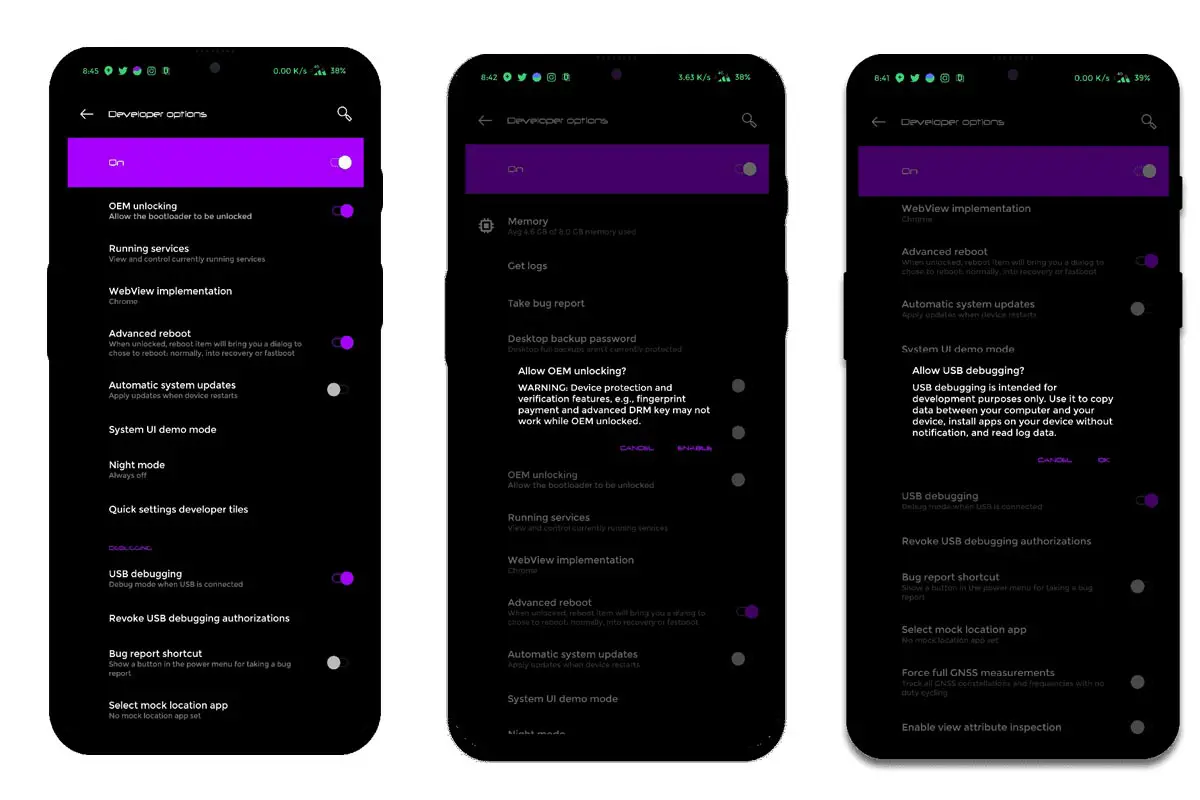
-
Enable USB Debugging Mode and OEM Unlock on your mobile. To do this; go to settings >>> about >>> Tap on the “Build Number” 7-10 times consistently to enable “Developer Options,” then go to the “Developer Options” and enable USB Debugging Mode, OEM Unlock and Enable the ‘Advanced Reboot.’ There is no complicated process in Xiaomi Mi Max 2.
-
Also, download the ADB drivers. Install it in your PC.
- Download Magisk.Zip (Latest Version) and Copy it to Your Phone Memory.
-
Download and save the TWRP File in your PC and rename it to recovery.img.
- Download Disable Force Encryption Treble and Save it in your mobile.
Unlock Bootloader using ADB and Fastboot
- Go to official Mi Bootloader Unlock website and log in with your Mi Account.
- Enter your Mobile details like phone number, IMEI, reason. You will get the confirmation code on your mobile. Enter the confirmation code in Mi website and request for unlocking. You will receive a confirmation mail after the approval in 2-10 Days.
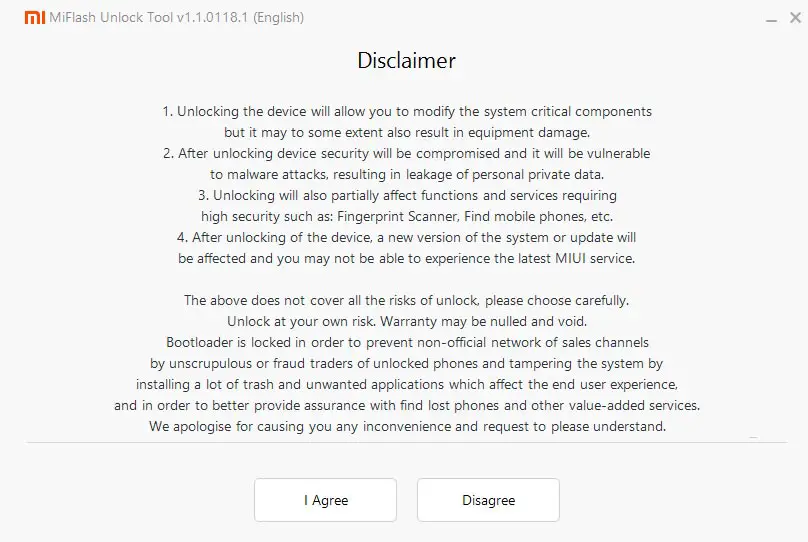
-
Install the Mi Flash Tool in the received mail. Log in with your Same Mi Account, which used to get the Software.
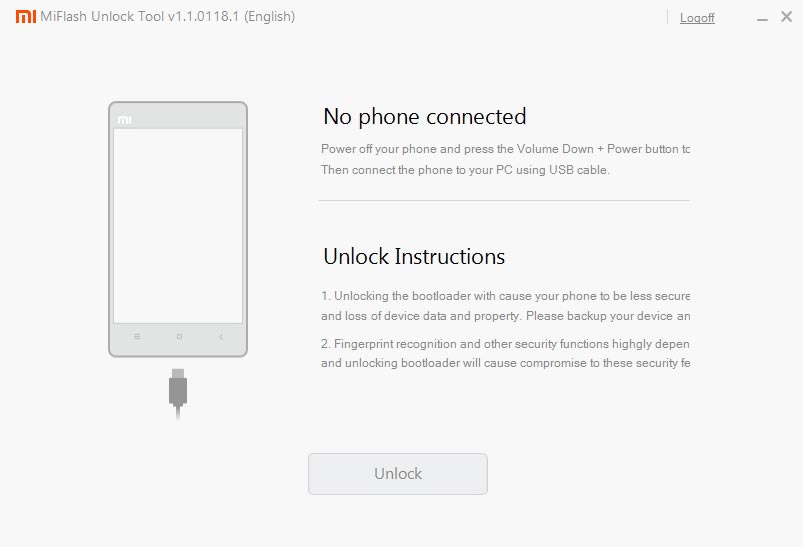
- Switch off your device. Connect your mobile to PC. Then, enter into Fastboot mode. To do this; Press and hold down the Volume Down + Power buttons at the same time for some time. It will boot your mobile into Fastboot mode.
-
After you successfully boot into Fastboot mode, Select Unlock. It will take 2-3 minutes to finish the process. After the successful process completion, Reboot your mobile.
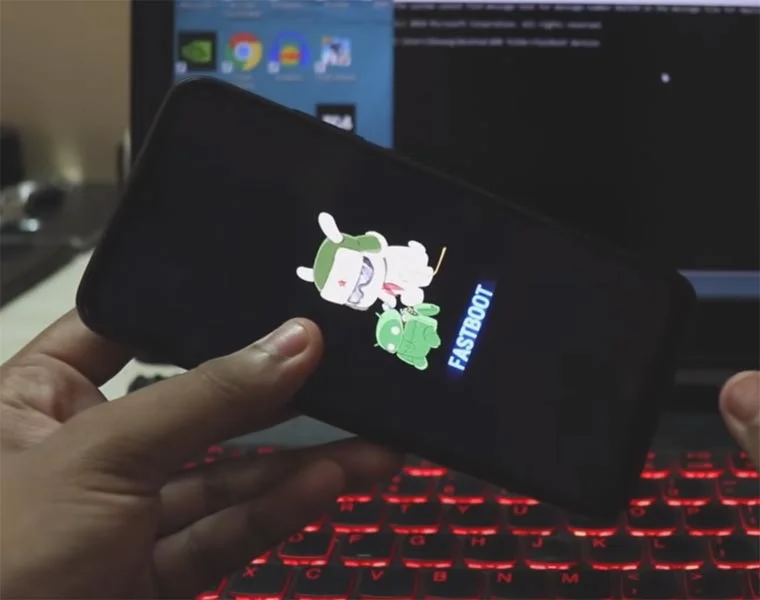
-
Check again enable “Developer Options,” then go to the “Developer Options” and enable USB Debugging Mode, OEM Unlock and Enable the “Advanced Reboot.” Sometimes they disabled them self after the boot.
Flash TWRP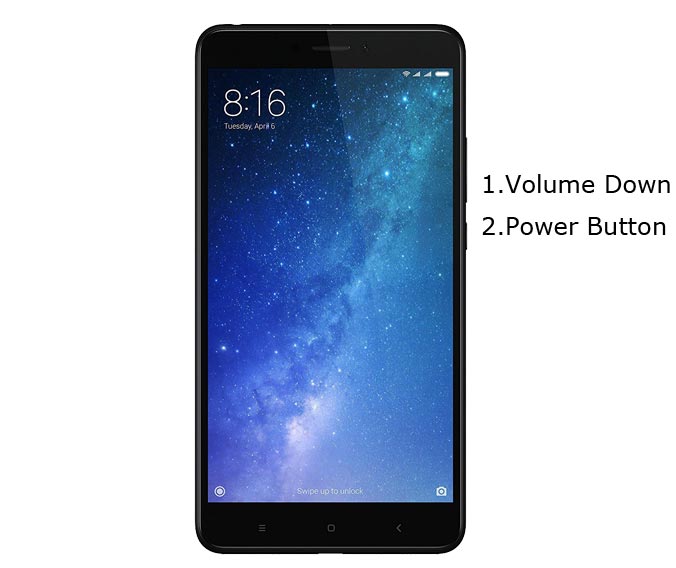
- Switch off your device. Connect your mobile to PC. Then, enter into Fastboot mode. To do this; Press and hold down the Volume Down + Power buttons at the same time for some time. It will boot your mobile into Fastboot mode.
-
Now, connect the Xiaomi Mi Max 2 mobile to the computer via USB cable.
-
Launch the fastboot on your computer. Open a Command prompt on your PC and type below command.
- fastboot flash recovery recovery.img
-
Don’t boot into Normal OS. Type the below command to Boot into TWRP.
- fastboot boot recovery.img
- After the process complete, It will boot into the temporary TWRP. Don’t Boot into standard OS until we flash magisk.
Install Magisk and Disable Force Encryption Treble in your Xiaomi Mi Max 2 using TWRP
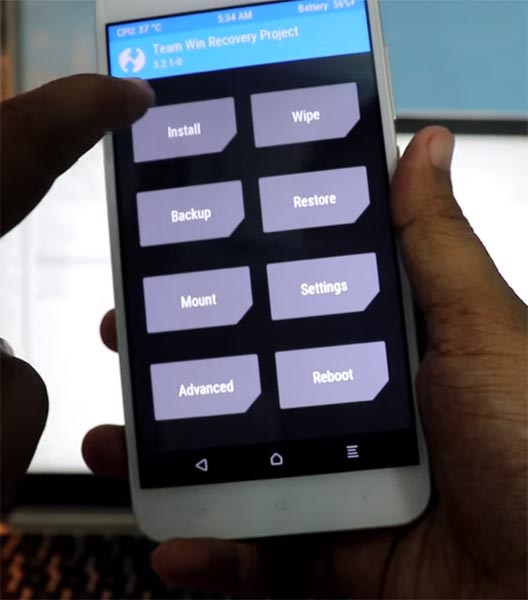
- Select Wipe->Advance Wipe->Select Cache Data.
- Return to Home of TWRP select Install.
- Select Disable Force Encryption Treble.Zip.
- After the Installation Again navigates to Home and Select Install.
- Select Magisk.Zip. After the successful installation, Reboot your mobile.
- You can also install Magisk Manager in your Mobile Applications. Install Root checker to verify your Root Status.
What More?
Xiaomi Mi Max 2 version has a minimum of 4 GB RAM, and it is a Good Mid-End phone; But, There are no Major regular updates and monthly updates, from Xiaomi for a long duration. If you compare it with other devices, they still receiving updates. So, you know what you are doing and the real purpose, you can root your device. If you want to disable Ads, you can use other methods, which doesn’t require root. Xiaomi promised to optimize these Ads in the upcoming versions.

Selva Ganesh is the Chief Editor of this Blog. He is a Computer Science Engineer, An experienced Android Developer, Professional Blogger with 8+ years in the field. He completed courses about Google News Initiative. He runs Android Infotech which offers Problem Solving Articles around the globe.



Leave a Reply